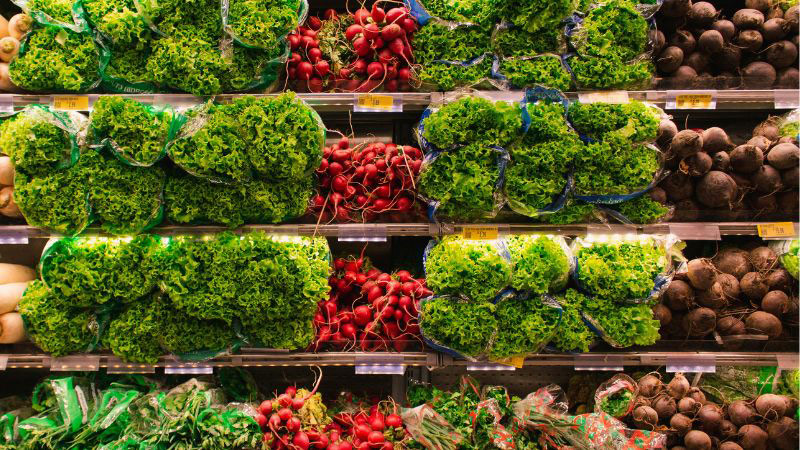Less meat, more impact: The benefits of cutting back
Author: UNB Sustainability
Posted on Feb 27, 2025
Category: Opinion

Reducing our consumption of meat can be beneficial for both our personal health, as well as the health of the environment. For our personal health, cutting back on meat can reduce the risk of heart disease, stroke, and diabetes.
From an environmental lens, intensive livestock farming is a major source of greenhouse gas (GHG) emissions, making it a large contributor to climate change. If we can reduce the high demand for meat products, we can help mitigate the impacts that overconsumption is having on the environment.
It is important to note that it is not necessary to completely transition to a vegetarian diet to see these benefits- every step helps, even if it’s just committing to one meatless day per month.
Overconsumption of red and processed meats can contribute to various negative impacts on our health. These impacts can increase the risk of cardiovascular disease, stroke, and/or diabetes.
These risks stem from the high saturated fat content and harsh chemical compounds found in these mass-produced meats. However, it should be noted that red meat consumption is not inherently negative to our overall health when moderately consumed.
There are benefits including high protein content, a great source of iron, and an excellent source of vitamin B12, among others. Consuming these products at the recommended levels can help reduce the risk of the negative impacts ensuring that you can still indulge in their benefits.
Livestock farming can contribute to significant negative environmental effects, driven by the extremely high demand for meat products. This demand requires increased land usage, higher water consumption, and results in a major contribution to GHG emissions, especially methane, during production.
One way to mitigate these effects is by reducing our overall meat consumption and sourcing the meats that we do consume from ethically sourced and/or local farmers. Supporting local directly results in supporting your community.
It often results in your meats being fresher and safer with the use of little-to-no pesticides or hormones. Furthermore, you’ll be able to directly engage with the producer, giving you the opportunity to ask questions and learn about their own processes.
Completely changing your dietary patterns can be extremely challenging. It’s not necessary to completely transition into a vegetarian or vegan diet to reap the benefits mentioned previously. Even smaller adjustments, such as incorporating one meatless day per week or month, can make a significant impact.
Starting in January of this year, UNB Sustainability launched a “Sustainable Food” initiative alternating between two monthly features: ‘Meatless Mondays’ and ‘Conscious Consumption’.
‘Meatless Mondays’ encourages the UNB community reduce their overall meat consumption, and ‘Conscious Consumption’ educates about food security, highlighting on-campus initiatives that supply locally and ethically sourced foods, and the environmental benefits of sourcing these items.
These features will be showcased on our Instagram and Facebook.
Remember, even small steps like eating less meat can lead to a more sustainable future.
Sources
MacDonald, J., Brauer, P., & Yi, S. (2023). Meat reduction among post-secondary students: Exploration of motives, barriers, diets and preferences for meals with partial and full meat substitution. Appetite, 188.
Wardle, J., Sorathia, A., Smith, P., & Feliciano, D. (2024). Environmental, social and economic perceptions of local food production: a case study of Aberdeenshire farmers’ markets. Scottish Geographical Journal, 140(1-2), 233–247.